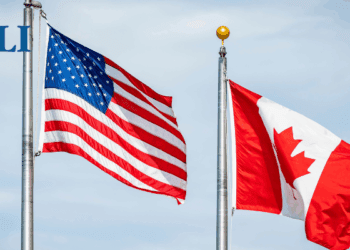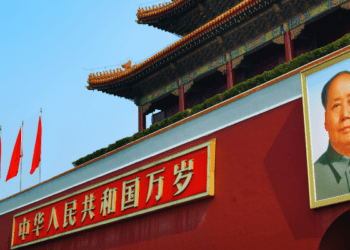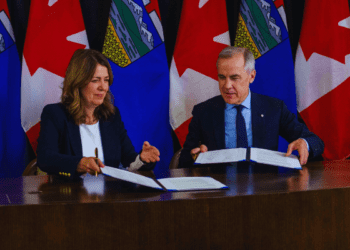This article originally appeared in the Line.
By Andrew Kirsch, October 29, 2024
When Justin Trudeau took the stand at the Hogue inquiry on Oct. 16, the prime minister alleged that a number of Conservative parliamentarians or candidates were “engaged in or at a high risk of foreign interference.”
It was plainly a political manoeuvre of self-preservation and deflection away from some of the much more concrete reports out of the inquiry — revelations which indicate clear, inexcusable failings on the part of his own government.
One such revelation is that a Canadian Security Intelligence Service warrant application sat on — or at least near — the Liberal minister of public safety’s desk for 54 days before it was signed. Although it usually takes less than 10 days, it appears his chief of staff did not pass it on promptly, for reasons that have yet to be made clear. Reporting has suggested that the warrant targeted Michael Chan, a GTA politician with long ties to the Liberal party; Chan denies this, and has sued to clear his name.
Making the delay even stranger, then-Public Safety Minister Bill Blair signed two other warrants while this one languished. Nobody in the government can explain the delay — or even seems particularly bothered by it.
That’s a big problem for Canada’s national security, especially in the wake of recent revelations about China, Russia and India.
Warrants only come into play when a subject of an investigation becomes a serious concern. The threshold is high. A warrant gives CSIS the authority to use intrusive investigative techniques. Those include access to otherwise privileged information, for instance, the intercept of private communications.
To justify this intrusion, CSIS must demonstrate to a court why it believes the individual is a threat and how access to this information will further the investigation. Once submitted, a judge then weighs the level of the threat and the rights of the individual against the interests of national security.
Producing a warrant is painstaking and meticulous. Given the significant powers and scrutiny from the courts, warrants take time to write and review. Invoking warrant powers once granted is similarly complex, demanding operational plans that weigh the benefit of the information against the risk of getting caught procuring it.
These operations often have limited windows of opportunity and require lots of resources and months of planning.
The minister of public safety plays a key role in accepting or rejecting the warrant application for transmission to the courts. It is typically a straightforward process. In the case of Blair, he testified at the Foreign Interference Commission under Justice Marie-Josée Hogue that he signed the warrant hours after receiving it from his chief of staff. As a former chief of Toronto’s police service, he was likely familiar with the warrant process.
The warrant was hardly out of the blue. Chan, a former Ontario Liberal MPP, had been the subject of CSIS briefs since as early as 2010. Further, CSIS had warned the government of foreign interference before the 2019 election. The National Security and Intelligence Committee of Parliamentarians had provided a report in 2019 on foreign interference in Canada, with a special eye on election meddling.
This familiarity with the investigation is ultimately why the delay is a concern. The government had learned that foreign interference occurring in the 2019 election campaign had likely benefited the Liberal party in some instances, and the delay raises the alarming possibility that the office of the minister of public safety sat on a warrant which would have given CSIS the power to investigate a colleague they knew would be an active organizer and fundraiser for them in the upcoming 2021 election.
The issue speaks to something larger. Earlier testimony at the inquiry revealed that the Prime Minister’s Office had taken CSIS advice skeptically and sometimes not at all.
The mandate of CSIS is to collect, analyze and advise government on threats to the security of Canada. The government then determines its response. The minister has the right to accept or reject an application. That is an important piece of political accountability in the process between public servants and the courts.
But the stakes are high: delaying a warrant affects CSIS’s ability to carry out its critical function. Ignoring reporting is one thing. Inexplicably impeding an investigation is another, preventing Canada’s domestic security service from doing its job. Accountability demands justifiable decisions, yay or nay — not delays.
The Hogue commission was struck to investigate foreign interference in our democratic institutions and the government’s response. Leaks of CSIS reports in the news suggest the Liberal government was aware that it was a beneficiary of foreign interference and did not act appropriately to counter it.
The government’s defence of inaction on the broader threat of foreign interference thus far has been attributed to skepticism of the intelligence and in some cases incompetence or complacency — what is casually referred to as a “lack of security culture” in Ottawa.
Intentionally delaying a CSIS warrant would be an active intervention that cannot and should not be waved away — or distracted by political posturing.
The issue demands answers. The government owes Canadians no less.
Andrew Kirsch is a Senior Fellow at the Macdonald-Laurier Institute. He is a former CSIS intelligence officer.






